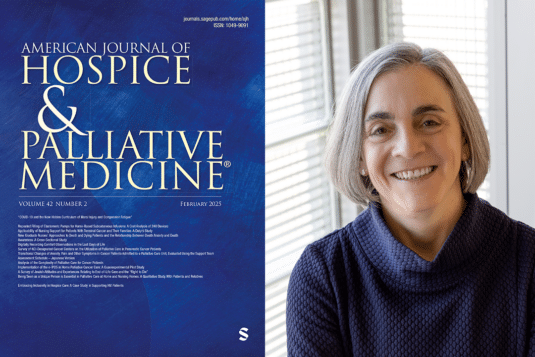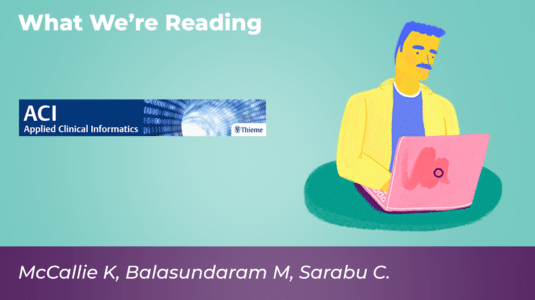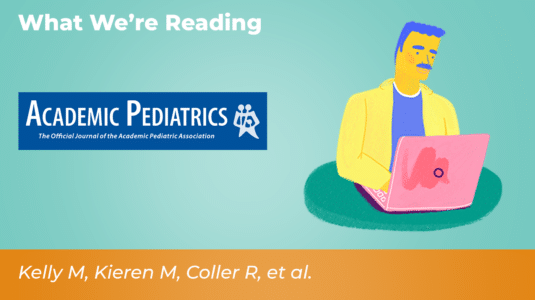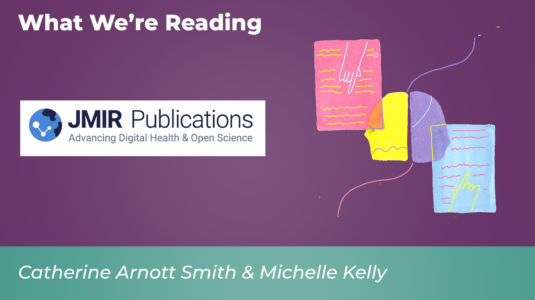This paper addressed the particular needs of chaplains in oncology settings where relationships tend to be longer. It recommends using strengths-based language, avoiding language that suggests disbelief, shortening notes, and using documentation to extend spiritual care.
Inpatient Notes
A multicenter randomized trial to improve family clinical note access and outcomes for hospitalized children: The Bedside Notes study protocol
https://doi.org/10.1002/jhm.70155 Introduction The 2021 Cures Act mandates caregiver access to their child′s medical notes with few exceptions, yet fewer than 10% access notes during hospitalization. Caregiver review of real-time notes facilitates identification of safety concerns and may enhance patient safety in pediatric hospitals. This trial will evaluate the Bedside Notes intervention—a multifaceted approach to enhance…
Patients and families reading their discharge summaries: A cross-sectional analysis of benefits, concerns, and implications
Rapidly spreading information transparency could transform how patients engage in care and communicate with clinicians. Patients and families report benefits from reading discharge summaries; however, over a quarter reported a concern.
Is Routine Discharge Enough? Needs and Perceptions Regarding Discharge and Readmission of Palliative Care Patients and Caregivers
This study investigated the hospital discharge process for palliative care patients and their caregivers, focusing on its patient-centeredness, discharge readiness, and links to readmissions.
Family perception of OpenNotes in the neonatal intensive care unit
At the end of the NICU discharge education, completed in the patient portal before discharge, families were offered an anonymous survey on OpenNotes. To the authors’ knowledge, this is the first study on NICU families’ perceptions of OpenNotes, which indicated positive interactions with the doctors’ daily progress notes and gave important suggestions for improvement.
Pediatric open notes: Caregiver experiences since the 21st century Cures Act
While research on the impact of Open Notes in pediatric inpatient settings remains limited, recent findings have improved our understanding by adding actual caregiver experiences to the expectations identified in our initial study. As we move into this new era of transparency, we call for further investigation of the impact of note sharing on health care outcomes for children while continuing to develop strategies to mitigate challenges.
In anticipation of sharing pediatric inpatient notes: Focus group study with stakeholders
Distinct themes identified as benefits of pediatric inpatient Open Notes for parents emerged from all the 5 focus groups. These themes were communication, recapitulation and reinforcement, education, stress reduction, quality control, and improving family-provider relationships. Challenges identified included burden on provider, medical jargon, communication, sensitive content, and decreasing trust.
Sharing Notes With Adolescents and Young Adults Admitted to an Inpatient Psychiatry Unit
Our data suggest that AYA patients with active behavioral health concerns understand and express general satisfaction with their medical documentation. Overall, reading medical documentation seemed to help a greater proportion of research participants as opposed to hindering or having no effect on inpatient counseling and therapy compliance. These are the first data to demonstrate medical note comprehension and satisfaction among AYA patients in vulnerable clinical settings.
Patient Access to Electronic Health Records During Hospitalization
In 2001, the Institute of Medicine recommended improving patient engagement by providing continuous care, allowing patients to be the source of control and fostering transparency with patients and families. Electronic health records (EHRs) facilitate these objectives via the use of patient portals. Giving outpatients direct access to their health information helps clinicians find errors and improves patient satisfaction, although the implications of this type of access have not been well studied in the inpatient setting. This hospital-based study evaluates the experiences of patients, clinicians (including physicians and advanced practice providers), and nurses with immediate (real-time) release of test results and other EHR information through a patient portal.








